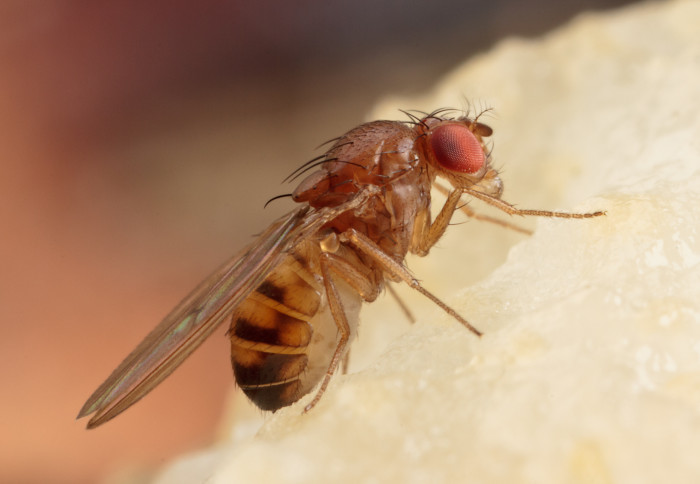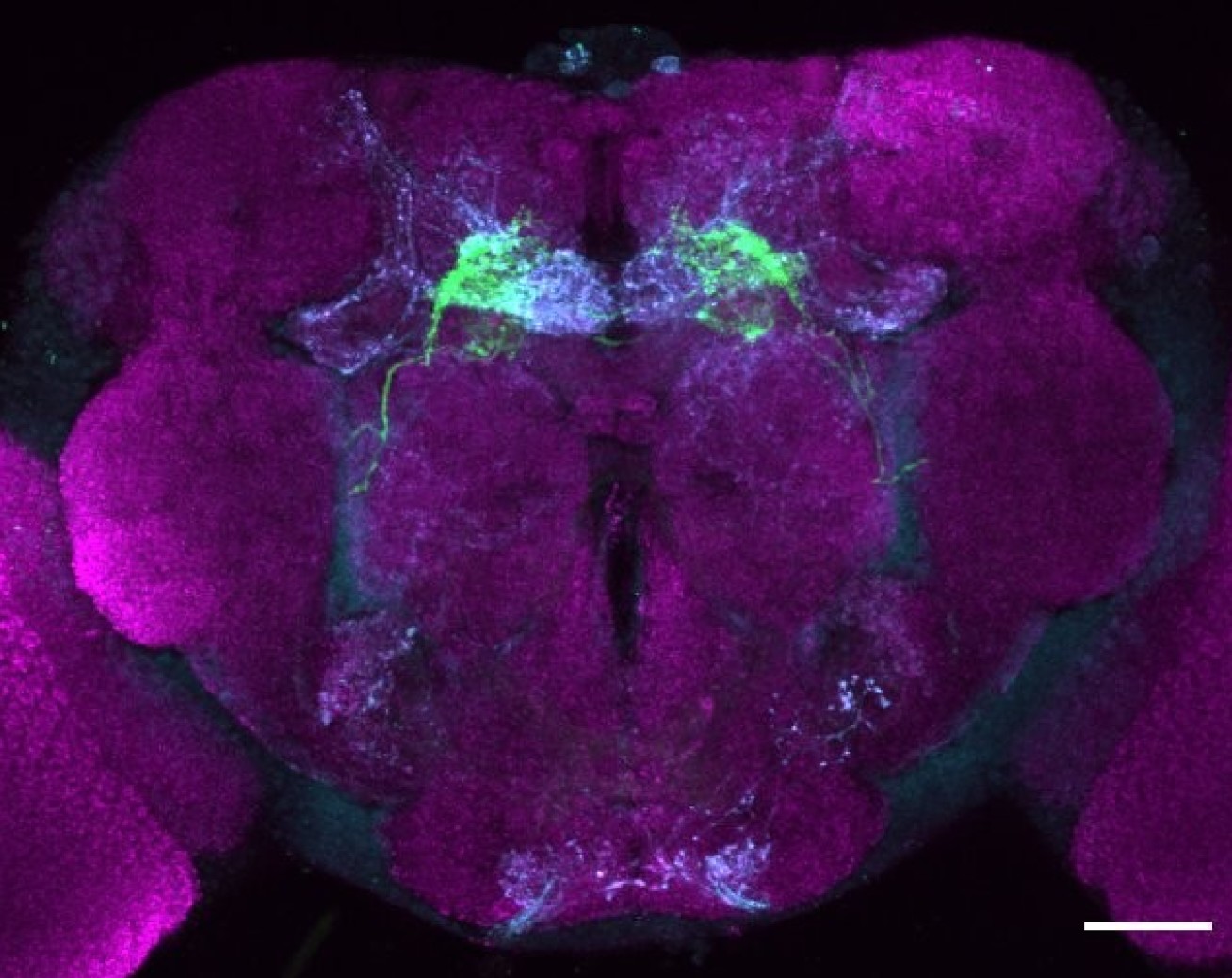
Global S&T Development Trend Analysis Platform of Resources and Environment
| "Is that a bacon sandwich?" - Fruit flies react to smells while asleep | |
| admin | |
| 2021-09-29 | |
| 发布年 | 2021 |
| 语种 | 英语 |
| 国家 | 英国 |
| 领域 | 资源环境 |
| 正文(英文) | 

Researchers have tracked flies’ ability to interpret information while asleep, showing which parts of the brain remain ‘awake’. The study, led by Imperial College London researchers and published today in Nature, is the first to show how an animal brain subconsciously processes ‘salient’ information that requires interpretation, such as smells. In fruit flies, who share more in common with us than you might think, we have discovered one region of the sleeping brain stays awake to process smells. Dr Alice French While we sleep, we can react to two kinds of stimulus. Quantitative information, like a loud noise or a slap in the face, requires no special processing to wake us up. However, qualitative or ‘salient’ information requires us to do some subconscious processing – for example, if someone is speaking, are they calling our name? Or is that wail our baby crying? Although the phenomenon has been recognised in humans, it is much more difficult to track the processing in a human brain due to its complexity. However, for fruit flies the entire ‘connectome’ – the map of neurons and their connections in the brain – has been defined, allowing researchers for the first time to determine which parts of the brain are involved in salient subconscious processing. Staying alertFirst author Dr Alice French, from the Department of Life Sciences at Imperial, said: “Sleep puts you in a vulnerable position, such as being at risk of predation. Therefore, animals, including humans, need to be able to respond to potential threats so that they wake up and act. If it’s a sound, like a loud bang, the processing our brains need to do is relatively simple. “However, to actively decode the sounds and smells around us that may or may not be relevant to us, different parts of the brain must remain alert. Now, in fruit flies, who share more in common with us than you might think, we have discovered one region of the sleeping brain stays awake to process smells.”
The researchers were able to test thousands of flies using their ‘ethoscope’ setup, where flies are placed individually in tubes and monitored by an automatic camera system. Once the system detects a fly is asleep, a puff of odour is released, and the system records whether the fly responds. The team then tracked the neurons involved with fluorescent markers, following the chain of highlighted neurons from the antennae (the fly nose) to the brain region involved in sleep regulation. They were able to confirm their conclusions by switching on and off some of the highlighted neurons, affecting the flies’ ability to detect odours. Drunk and sleep-deprivedThe researchers also took their study further, asking whether the flies’ response to salient information was fixed or ‘plastic’ – would it be different under different circumstances? In humans, this is observed for example when people sleep in an unfamiliar place, making them more sensitive to external stimuli while they sleep. For the flies, the researchers changed several factors they thought might affect their response to odours, including starvation during the day, sleep deprivation, and drunkenness. Drunk and sleep-deprived flies were less responsive overall to odours, but the starved flies were more responsive specifically to food-related odours. 
Lead researcher Dr Giorgio Gilestro, from the Department of Life Sciences at Imperial, said: “Sleep is always a trade-off – while asleep you are vulnerable to predators and you can’t collect food or mate – so it must be important, but we don’t know exactly why. While all animals sleep, its character differs across the animal kingdom. “Fruit flies are the ideal study subjects because they exhibit complex behaviours, including sleep, but have relatively simple brains, allowing us to investigate the roots of this common behaviour. However, even in fruit flies, different species have different levels of sleep and wakefulness. Investigating how different animals balance their needs can help us determine the ultimate function of sleep.” The team are now looking closely at related species of fruit fly, to determine how their ecology – such as what they eat and where they live – affects their response to stimuli while they sleep. This should allow them to trace the evolution of the phenomenon, by seeing how it is conserved across species. - ‘Sensory processing during sleep in Drosophila melanogaster’ by Alice French, Quentin Geissmann, Esteban J. Beckwith, and Giorgio F. Gilestro is published in Nature. |
| URL | 查看原文 |
| 来源平台 | Imperial College London |
| 文献类型 | 新闻 |
| 条目标识符 | http://119.78.100.173/C666/handle/2XK7JSWQ/338620 |
| 专题 | 资源环境科学 |
| 推荐引用方式 GB/T 7714 | admin. "Is that a bacon sandwich?" - Fruit flies react to smells while asleep. 2021. |
| 条目包含的文件 | 条目无相关文件。 | |||||
| 个性服务 |
| 推荐该条目 |
| 保存到收藏夹 |
| 查看访问统计 |
| 导出为Endnote文件 |
| 谷歌学术 |
| 谷歌学术中相似的文章 |
| [admin]的文章 |
| 百度学术 |
| 百度学术中相似的文章 |
| [admin]的文章 |
| 必应学术 |
| 必应学术中相似的文章 |
| [admin]的文章 |
| 相关权益政策 |
| 暂无数据 |
| 收藏/分享 |
除非特别说明,本系统中所有内容都受版权保护,并保留所有权利。
修改评论